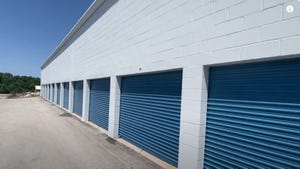A periodic audit of your self-storage facility is imperative to keeping your operation on track. As an owner, you need to regularly audit the financials, people and processes that dominate your business. Here’s a primer to get you started.
As a self-storage operator, you can easily get caught up in the day-to-day routine of running your business. The phone rings. You have six e-mails to return. Ding, there’s a text message. Oh, and by the way, you have four reservations coming in to rent a unit, and the municipality is sending out the friendly fire inspector today. There’s lots of stuff keeping you busy, and there’s only so much mental energy to complete it all.
It’s easy to fall into each activity without keeping a close eye on the bigger picture. In this world of 24-hour connectivity, plenty of people are trying to hijack your attention on a daily basis. You started fresh and chipper on Jan. 1; now it’s suddenly summer, and you have no idea where the first half of the year went.
This kind of distraction can be more damaging to a self-storage business than a hurricane or fire. It’s why a periodic audit is imperative to keeping your operation on track. Auditing your facility isn’t just about revenue. As an owner, you need to regularly inspect the financials, people and processes that dominate your business. Here’s a primer to get you started.
Financial Audit
The first thing we automatically think about when we hear the word “audit” is money. Every self-storage property should have a strong system of checks and-balances when it comes to handling revenue. You should be using management software to track every transaction conducted at your facility. There are a number of great options, but what isn’t an option is a manual system that includes any of the following: note cards, paper ledgers, pencils, sticky notes or an abacus.
Insufficient attention, human error and a manual ledger create the perfect environment for embezzlement to thrive. It’s 2015. You can easily find a computer the size of a soda can, and it will cost you less than $400. Trust me, your facility will save more than $400 every month by using management software.
Once you have your software ready to go, all facility transactions should be accounted for in this system. First, all cash, checks and credit cards should match the closing report for each day. Cash and checks should be deposited daily, with deposit slips coordinated to that specific day. Credit cards should be batched out daily as well.
When reconciling your financial information, you should expect all transactions to have explicit start and end date. Apathy and procrastination are the enemy of accurate information. Your facility’s financial future, which may include a property sale or refinance, depends on precise and up-to-date data.
In addition to regularly auditing daily transactions, inspect every petty-cash transaction, debit-card expense, and any and all discounts, credits or rental-rate variances. It’s extremely easy for a manager to find a customer who regularly pays cash and then credit that person every month while the cash disappears into a black hole. Any variations in deposits or expenses must be investigated fully.
Physical Audit
Next, conduct a physical audit of the property. First, print out a rent roll or walk-through report from your management software. It’s time for an adventure. Visit each unit on your report. Is it rented by a customer? If so, is it secured by a customer’s lock? If the unit is vacant, is it locked with a facility lock? If a unit is sufficiently delinquent, is it overlocked? If a delinquent tenant brought his account up-to-date, did the manager remove the overlock?
Are there any variations between the physical inspection and what your computer reports show? If so, why? If there are any differences, a more in-depth analysis is needed. As a self-storage owner, you need to know what’s happening with your facility’s unit inventory.
Policies and Procedures Audit
Finally, conduct an audit of your facility’s policies and procedures on a regular basis. Are they followed consistently? Are all rental agreements completed and executed by the customer? If the customer’s agreement required an addendum, was it provided and executed correctly?
Are you tracking the effectiveness of your marketing campaigns? Are the managers closing leads with the sales process you’ve put in place? Are customers treated to exceptional service? If not, is there a set procedure through which tenants can reach out to someone before the facility gets blasted negatively on social media? Is the office clean, with all inventory accounted for and correctly displayed? Are the bathrooms tidy? Is there bottled water for customers?
Typically, auditing revolves around how much revenue a facility generated and whether all of it made it to the bank. Financial auditing is a critical part of the overall operation, but it’s just as important to inspect the rest of your business. It’s an absolute guarantee that if you have strong controls for your finances but weak controls for the rest of your operation, you’ll lose more revenue from apathy, complacency, procrastination and waste than will ever be physically stolen.
The self-storage facilities with the highest standards—that are also strictly enforced—have the highest occupancy, drive more revenue and have less turnover than those that lack standards. Setting up strong systems will help your business dominate your geographical market, create happy customers and retain satisfied facility managers.
Matthew Van Horn is vice president of Cutting Edge Self Storage Management, which specializes in facility management, feasibility studies, consulting and joint ventures. He’s also president of 3-Mile Domination, a full-service self-storage marketing and strategy company. For more information, visit www.cuttingedgeselfstorage.com and www.3miledomination.com, where you can download a free e-book.
About the Author(s)
You May Also Like





